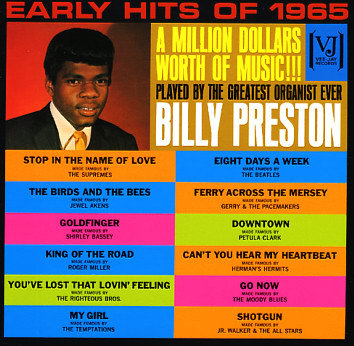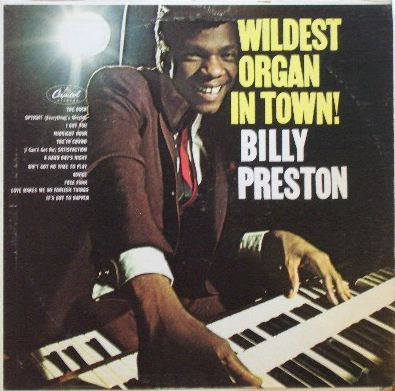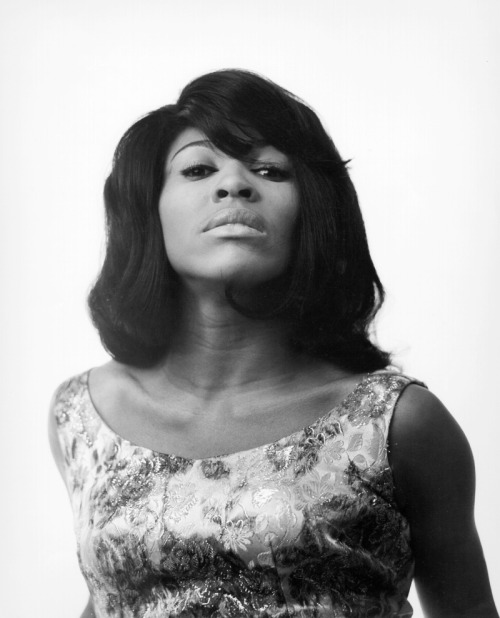
When our love was young: Opening Night, 2011 #rctid

When our love was young: Opening Night, 2011 #rctid

We’ll always have Vancouver at home, 2011 (even Pong smiled). Adieu, Spenny. #rctid
A visit to Portland by the legendary actor, who died yesterday, led to a phone call and an unforgettable night.
When Turner Classic Movies and the Northwest Film Center announced in late winter that Ernest Borgnine would be coming to Portland to introduce a screening of "Marty," I was puzzled. The event, a preamble to the TCM Classic Film Festival, seemed rather a lot to ask of a man who had just turned 95, and "Marty," as estimable as it may be, had no special meaning that I could see for a Portland audience.

“….I think you’ll understand….” (via SerenadeFromHell)



Ernest Borgnine, who died today at age 95, visited Portland in April to introduce “Marty” and wowed a crowd with stories. He stood to shake my 12 year-old daughter’s hand when they met and spoke to her in the voice of his “SpongeBob SquarePants” character Mermaid Man. He was a gentleman. I miss him already.

That girl (and that chick): Quvenzhané Wallis


Only the shirts change: Iniesta vs. Italy; Iniesta vs. Croatia

That girl: Anjelica Huston (and a Happy Birthday to the Divine Miss H….)

Last summer I met one of my heroes. (I’m the wee one.)
Boosts from Sundance and Cannes prizes don't translate into boxoffice appeal
One of the most eagerly awaited films of the summer is upon us, and it has no special effects, no comic book connections, no action scenes, no raunchy jokes, and no actors that you’ve ever heard of.

The irresistible Billy Preston!
Reviews of this week's new releases in Portland-area theaters.
The big movie opening of the week is "The Amazing Spider-Man," but there's plenty of variety out there, and we review much of it, including Woody Allen's Italian rondelay "To Rome with Love," Oliver Stone's bloody, sexy crime film "Savages," the Duplass brothers' warring-sibling comedy "The Do-Deca-Pentathalon," and a restored print of Jean Renoir's 1937 classic "Grand Illusion." On top of that, you can, as always, count on "Also Opening," "Indie/Arthouse" and "Levy's High Five."
A great tale of Oregon filmmaking: the climax of Buster Keaton’s “The General” (visit bustrkeatn for the whole story)
The five movies playing in Portland-area theaters that I'd soonest see again.
1) "Moonrise Kingdom"
Wes Anderson films are such a specific taste that I'm a bit hesitant to suggest
that this might be his most approachable (but surely not crowd-pleasing)
work. In the wake of the delightful "The
Fantastic Mr. Fox," Anderson returns to live-action and his familiar tics and
habits in a tale of young (as in 'pre-teen') lovers on the run. Newcomers Jared Gilman and Kara Hayward fill
the lead roles delightfully, and Anderson's muses Bill Murray and Jason
Schwartzman are joined ably by Edward Norton, Bruce Willis and Frances
McDormand, among others. It's a light
and breezy film with a very sweet heart and old-fashioned sturdiness. Even if you were left puzzled by the likes of
"Rushmore" or "The Royal Tenenbaums" (still his best non-animated films, for
me), this is likely to win you over. multiple locations
2) "Bernie” It’s a term of deep praise to note that writer-director Richard Linklater (deepbreath: “Slacker,” “Dazed and Confused,” “Before Sunrise,” “Before Sunset,” “Waking Life,” “School of Rock”)
is capable more than any contemporary American filmmaker of making
terrific movies about nearly nothing. Here, working with a
based-on-truth story, he gives us life in the small East Texas town of
Carthage, where a beneficent funeral director (Jack Black) and a mean, wealthy widow (Shirley MacLaine)
become unlikely chums and companions...under she mysteriously goes
missing. Linklater weaves the dramatized version of the story with dry
and deft interviews of actual Carthaginians (is that what they’re
called?) and even several musical numbers in a perfect frappe of a black
comedy. multiple locations
3) "Your Sister's Sister" Seattle filmmaker Lynn Shelton spins a sweet and sad and true-feeling variation on a Hollywood romcom, with shlubby leading man Mark Duplass caught unexpectedly between two half-sisters, Emily Blunt and Rosemarie DeWitt.
There are machinations that could have been drawn from a higher-gloss
(and less appealing) film. But, as in her not dissimilar "Humpday,"
Shelton finds real grounding for the story in the personalities of her
cast, who improvised some of their scenes within guidelines. The result
feels theatrical and human at once, with three wise, low-key
performances and a credible air of confusion and hope. A sly winner. Fox Tower
4) "Monsieur Lazhar" This delicate, sweet and, surprisingly,
harrowing little drama was nominated for an Oscar as best foreign language
film, and it's a mark of its quality that it's a very good film despite that sometimes dubious
distinction. Mohamed Fellag stars as the
title character, a secretive and formal man who arrives at a Montreal school
out of the blue and volunteers to take the place of a teacher who has left
under horrid circumstances. Gradually
his compassion and wisdom come to heal wounds, just as his own personal pains
are revealed. Writer-director Philippe
Falardeau dances around the clichés inherent in the scenario as if they didn't
exist, eliciting wonderful performances from his cast (especially the kids) and
real emotions from the audience. Living Romm Theaters
5) "Abraham Lincoln: Vampire Hunter" Yes, I know it's an absurd premise and that in many ways it exists only to be absurd, but there's genuine skill and relish in director Timur Bekmambetov's adaptation of Seth Grahame-Smith's novel. The action, as in Bekmambetov's "Night Watch," "Day Watch" and "Wanted," is spectacular, the 3-D effects are top-notch, the woodenness of the historical bits is deliberate and cheeky, and Benjamin Walker is actually quite good as the title character, embodying the clumsiness and self-mocking qualities of the real man and the bloodthirsty venom that this over-the-top story requires. As a summer goof, it's swell. multiple locations
A quartet of stories set in the Eternal City find the director in a late-career glide.
In the wake of the popular and critical success of “Midnight in Paris,” Woody Allen has caught a flight to Italy and whipped up “To Rome with Love,” a hodgepodge of jokes and stories which adds up to little more than a simple -- and intermittent -- pleasure.Jean Renoir's 1937 prisoner-of-war drama is one of the standards to which all films must aspire.
Sometimes I’m asked why I almost never give a film a grade of ‘A,’ and I reply that to do so is to declare a movie an immortal classic on a par with “Casablanca” or “The Godfather”: works of perfection as both art and entertainment and survivors of the test of time.A sexy, gory, drug-infused novel gets a treatment worthy of the Oliver Stone of "Natural Born Killers" and "The Doors."
It’s been a while since Oliver Stone exercised his chops on something as juicy as “Savages,” Don Winslow’s novel about a pair of Laguna Beach pot growers waging war against a Mexican drug cartel that wants to buy their business. What ought to be a straightforward negotiation becomes personal -- and very bloody -- when the Mexicans kidnap the girl whom the two California dudes share and love.Brothers wage war -- in 25 steps.
In “The Do-Deca-Pentathalon,” the writing-directing brothers Duplass, Jay and Mark (“The Puffy Chair,” “Cyrus,” “Jeff Who Lives at Home”) once again confront questions of maturation and family ties. It’s a slight and likeable film that doesn’t go very far dramatically but churns up some interesting waves.
That girl: Tina Turner (via ClassicalAllure)
New releases in Portland-area theaters not reviewed in this week's A&E.
“A Clockwork Orange” Alex and his droogs, back on the big screen. (Clackamas Town Center, Wednesday only)Catch 'em while you can!
Some of the best films you'll see this year are on their way out of Portland theaters. Only a few days remain to see the fantastic foodie documentary "Jiro Dreams of Sushi" and the heartening Japanese drama about kids and their dreams, "I Wish." Also departing: the comedies "The Five-Year Engagement," "Grassroots" and "Jeff Who Lives at Home."

Died on this date at age 27: Brian Jones (1969) and Jim Morrison (1971)
If "The Amazing Spider-Man" ain't your thing, you can go old-fangled for the holiday weekend.
A revived superhero franchise ("The Amazing Spider-Man") and a documentary about a pop star ("Katy Perry: Part of Me") are set to dominate the national boxoffice during the nearly week-long Fourth of July holiday. But in Portland-area theaters, you can escape the hype and novelty of the new with a nice selection of classic films. Playing now through Thursday are "The Godfather, Part II" (Academy) and "Logan's Run" (Laurelhurst). Wednesday brings "That's Entertainment" (Clackamas Town Center). On Friday, the merry prankers Cort and Fatboy will present "The Terminator" (Bagdad) for one show only, and week-long runs will start for "The Conversation" (Laurelhurst), "Grand Illusion" (Cinema 21) and "Monty Python and the Holy Grail" (Academy). Jim Jarmusch's "The Limits of Control" will be at the 5th Avenue Friday through Sunday, "Raiders of the Lost Ark" will play at the Hollywood Friday through Monday, and "Meet John Doe" will play at the Clinton Street on Monday. Who needs Netflix when you've got Portland movie theaters, amiright?© 2025 Shawn Levy Dot Com
Theme by Anders Noren — Up ↑